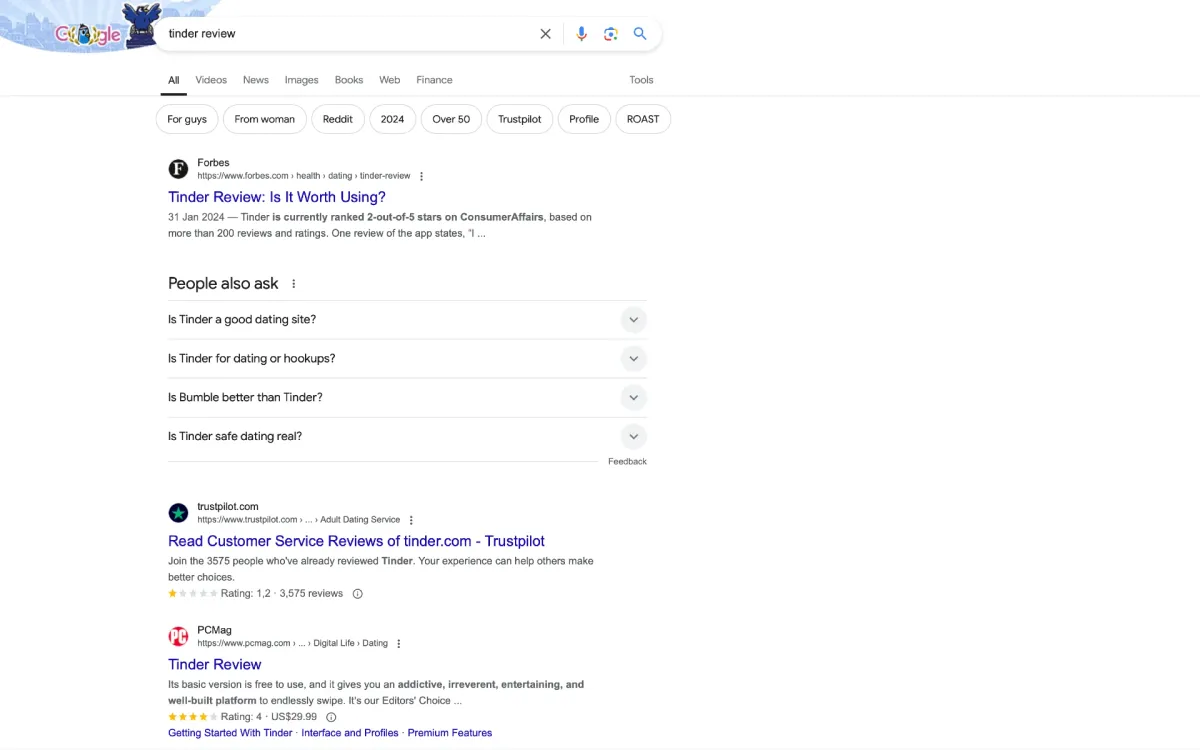Google's HCU: Brand signals may play larger role than expected
New data suggests Google's Helpful Content Update relies heavily on brand authority metrics rather than just content quality.

Moz this week published an analysis of Google's Helpful Content Update (HCU), revealing unexpected insights into how this algorithm change impacts search rankings. The study, conducted by Tom Capper, Head of Search Science at Moz, examined data from multiple HCU rollouts between September 2023 and August 2024.
According to Capper's findings, the HCU appears to be based more on brand authority signals than on subjective content quality assessments, as many search engine optimization (SEO) professionals initially believed. This revelation challenges previous assumptions about the update's primary focus and provides new perspectives on its underlying mechanisms.

The Helpful Content Update, first announced by Google in August 2022, was initially described as a sitewide signal influenced mainly by document-level factors intended to judge content helpfulness. Many SEO experts, including Capper, initially speculated that this update might be a preemptive move against a potential wave of AI-generated content. However, the new analysis suggests a different picture.
Capper's research methodology involved examining sites that consistently lost or gained rankings across multiple HCU implementations. The study utilized a corpus of approximately 1.9 million US English keywords tracked nationally, spanning various verticals and intents. To ensure data quality, the analysis excluded sites with fewer than 50 top 10 ranking positions at the start of any core update and those with Brand Authority or Domain Authority scores of 5 or less.
The findings revealed a stark contrast between sites that lost rankings (losers) and those that gained (winners) during HCU rollouts. Notably, HCU losers typically exhibited lower Brand Authority (BA) scores and higher Domain Authority to Brand Authority (DA:BA) ratios compared to winners or sites that saw no significant change.
Specifically, HCU losers had an average BA of 37, while winners and neutral sites averaged between 50-52. The DA:BA ratio for losers was approximately 2:1, compared to 1.4:1 for other sites. This pattern suggests that for any given Domain Authority score, sites with lower Brand Authority were more likely to be negatively impacted by the HCU.

Capper's analysis also considered various methodological adjustments, such as focusing only on top 3 ranking positions rather than top 10, which yielded similar results. Additionally, the study included control periods without HCU activity, demonstrating that the observed patterns were unique to HCU rollouts and not representative of general ranking fluctuations.
The implications of these findings are significant for the SEO community and website owners. While Brand Authority itself is not a direct Google ranking factor (it is a proprietary Moz metric), the study suggests that Google may be using similar or correlated signals in its HCU algorithm. This aligns with a previously identified patent related to branded or navigational search, which has been linked to earlier Google updates like Panda.
Capper hypothesizes that the HCU system may be evaluating the ratio of search volume for a site's navigational terms to its link signals. Sites with many inbound links but relatively low navigational interest might be deemed less deserving of high rankings, despite strong traditional SEO signals.
It's important to note that the most recent HCU, which completed on September 3, 2024, appears to be a partial reversal of previous updates. Many sites that were negatively impacted by earlier HCUs have seen some recovery, though generally not returning to their pre-September 2023 ranking levels.
For SEO professionals and website owners, these findings suggest a need to reconsider strategies:
- Content quality remains crucial, but may not be the primary focus of the HCU.
- Building brand awareness and navigational search volume could be increasingly important.
- Balancing link-building efforts with brand-building activities may lead to more stable rankings.
- Recovery from HCU impacts may occur naturally with subsequent updates, but full reversals are uncommon.
Key facts from the study
Analysis covered HCUs from September 2023 to August 2024
Data set included 1.9 million US English keywords
14,252 subdomains were analyzed, with 449 "losers" and 486 "winners"
HCU losers had an average Brand Authority of 37, compared to 50-52 for winners and neutral sites
DA:BA ratio for losers was 2:1, versus 1.4:1 for other sites
The September 3, 2024 update showed partial reversal of previous HCU impacts
Brand signals appear to play a larger role in the HCU than previously thought


